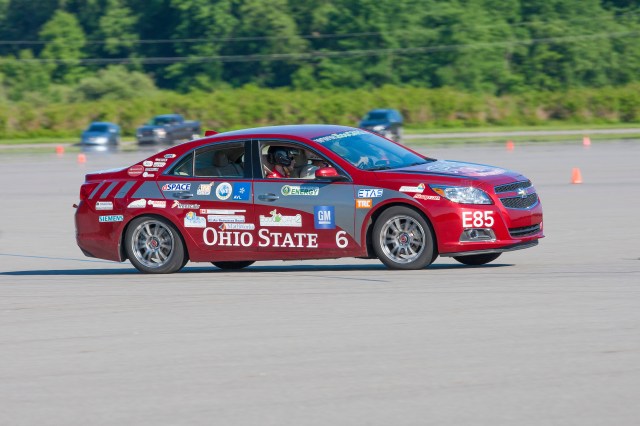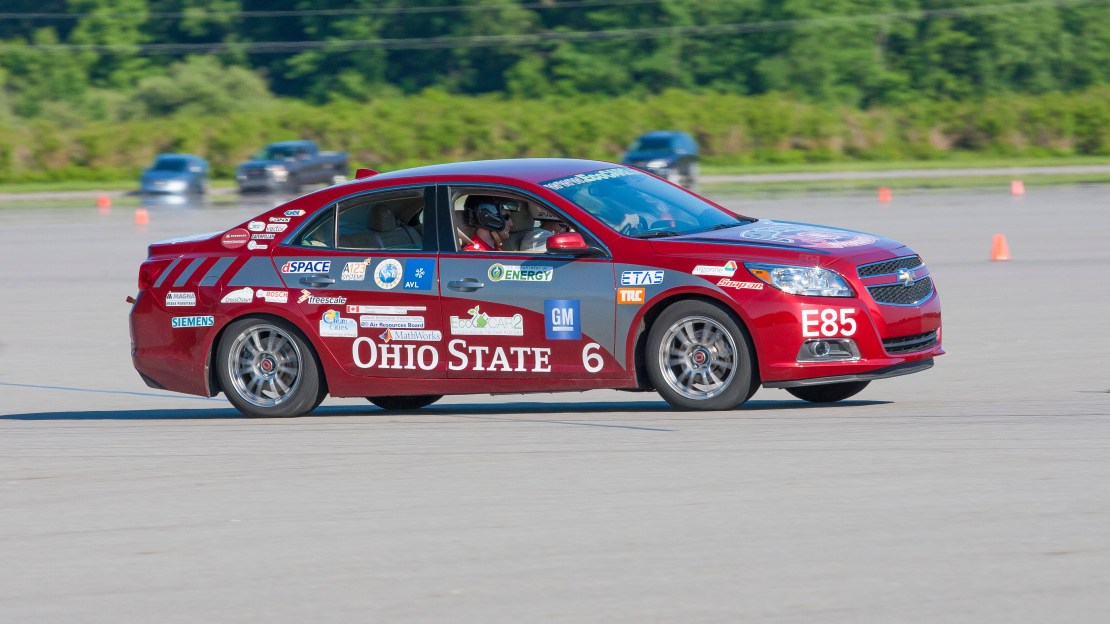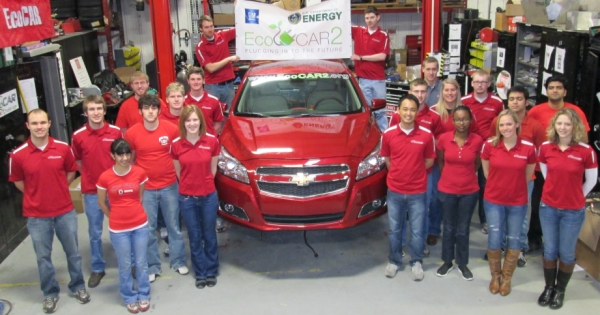BTN.com LiveBIG Staff, August 24, 2014
The challenge: Take a 2013 Chevrolet Malibu and make it even more energy efficient, without compromising on real-world performance or safety, and pave the way for the next generation of ultra-efficient vehicles.

Fifteen universities across the country were up for the challenge, but Ohio State University students came out on top this year, earning a first-place finish in the final year of the EcoCAR 2: Plugging in to the Future, a three-year collegiate engineering competition.
OSU?s diverse team of 15 graduate and 30 undergraduate students from the university?s engineering, business, communications and other departments collaborated to soup up and present a car that offered energy storage, electric drive and ethanol-fueled engine technology. The team?s design was able to achieve a 50-miles-per-gallon gas equivalent, while using 315 watt-hours per mile of electricity.
This win marks the sixth-consecutive year that OSU has placed in the top five of advanced vehicle technology competitions.
?The experiential learning that takes place in a project like this is absolutely tremendous,? says Shawn Midlam-Mohler, one of OSU?s EcoCAR faculty advisers and the director of Ohio State University?s Motorsports Program. ?A project like EcoCAR unites the research strength of Ohio State, the support of industry sponsors and the passion of our students to do something great. Students involved in a project like this are really standouts in the job market.?
The aim of the EcoCAR 2 challenge, which was established by the U.S. Department of Energy and General Motors, is to educate the next generation of automotive engineers on energy-efficient vehicles and influence the future of the transportation industry. The winning team receives a $32,000 cash prize.
The OSU students, led by faculty advisers, created a plug-in hybrid electric vehicle that features an A123 18.9 kWh battery pack combined with an 80kW peak electric machine on the rear axel that provides power to the rear wheels through a single-speed gearbox. The cutting-edge car is also unique in that the team developed their own automated manual transmission as well as a high-efficiency E85 engine.
The EcoCAR team successfully executed a very ?complicated design,? Midlam-Mohler says.
OSU also earned first-place finishes in numerous individual event categories at EcoCAR 2, including lowest petroleum consumption, best electrical presentation, technical report, best business presentation and communications program, pre-competition safety and technical inspection, among others.
The students have already begun prepping for their next automotive challenge: Developing concepts for EcoCAR 3, a four-year automotive competition that will transform a Chevy Camaro into a high-performance hybrid vehicle.
by Melissa Dittmann Tracey







 Check out what's coming up next live on B1G+.
Check out what's coming up next live on B1G+. 
